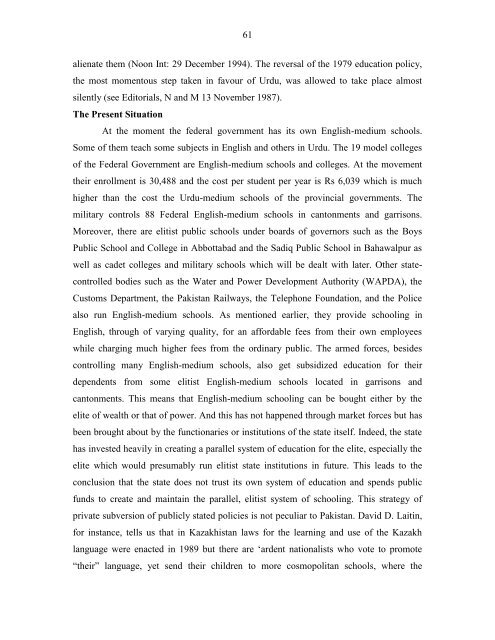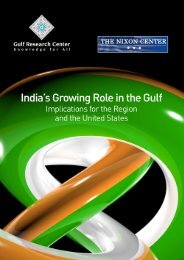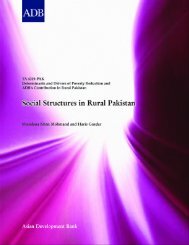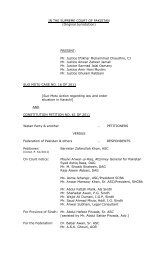DENIZENS OF ALIEN WORLDS
danizen1
danizen1
- No tags were found...
Create successful ePaper yourself
Turn your PDF publications into a flip-book with our unique Google optimized e-Paper software.
61<br />
alienate them (Noon Int: 29 December 1994). The reversal of the 1979 education policy,<br />
the most momentous step taken in favour of Urdu, was allowed to take place almost<br />
silently (see Editorials, N and M 13 November 1987).<br />
The Present Situation<br />
At the moment the federal government has its own English-medium schools.<br />
Some of them teach some subjects in English and others in Urdu. The 19 model colleges<br />
of the Federal Government are English-medium schools and colleges. At the movement<br />
their enrollment is 30,488 and the cost per student per year is Rs 6,039 which is much<br />
higher than the cost the Urdu-medium schools of the provincial governments. The<br />
military controls 88 Federal English-medium schools in cantonments and garrisons.<br />
Moreover, there are elitist public schools under boards of governors such as the Boys<br />
Public School and College in Abbottabad and the Sadiq Public School in Bahawalpur as<br />
well as cadet colleges and military schools which will be dealt with later. Other statecontrolled<br />
bodies such as the Water and Power Development Authority (WAPDA), the<br />
Customs Department, the Pakistan Railways, the Telephone Foundation, and the Police<br />
also run English-medium schools. As mentioned earlier, they provide schooling in<br />
English, through of varying quality, for an affordable fees from their own employees<br />
while charging much higher fees from the ordinary public. The armed forces, besides<br />
controlling many English-medium schools, also get subsidized education for their<br />
dependents from some elitist English-medium schools located in garrisons and<br />
cantonments. This means that English-medium schooling can be bought either by the<br />
elite of wealth or that of power. And this has not happened through market forces but has<br />
been brought about by the functionaries or institutions of the state itself. Indeed, the state<br />
has invested heavily in creating a parallel system of education for the elite, especially the<br />
elite which would presumably run elitist state institutions in future. This leads to the<br />
conclusion that the state does not trust its own system of education and spends public<br />
funds to create and maintain the parallel, elitist system of schooling. This strategy of<br />
private subversion of publicly stated policies is not peculiar to Pakistan. David D. Laitin,<br />
for instance, tells us that in Kazakhistan laws for the learning and use of the Kazakh<br />
language were enacted in 1989 but there are ‗ardent nationalists who vote to promote<br />
―their‖ language, yet send their children to more cosmopolitan schools, where the












